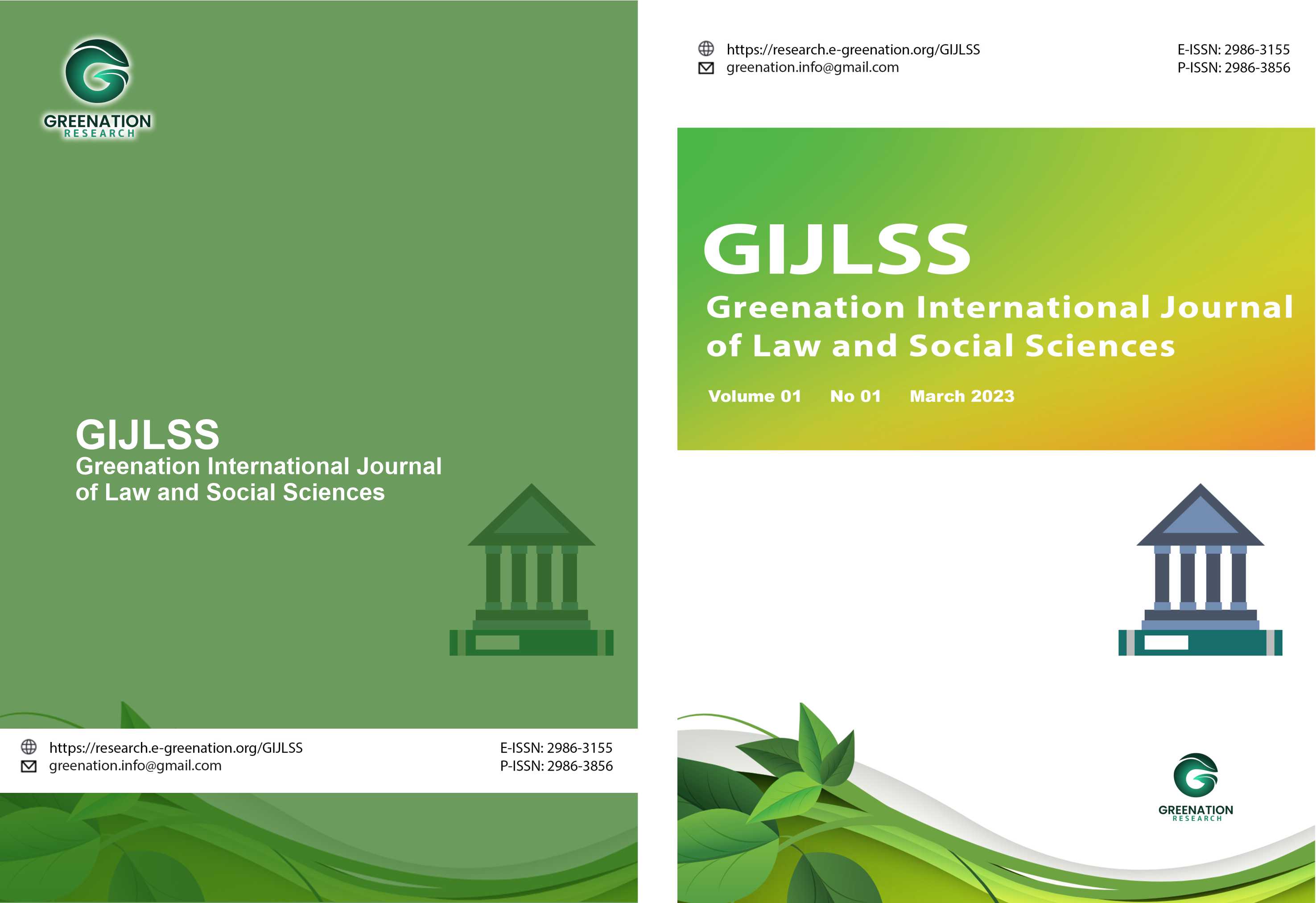The Effectiveness of Ultimum Remedium in Excise Crimes: Regulatory Analysis and Public Policy Implications
DOI:
https://doi.org/10.38035/gijlss.v3i3.571Keywords:
Ultimum Remedium, Excise Law, Termination of Investigation, Public PolicyAbstract
The principle of ultimum remedium in criminal law positions criminal sanctions as the last resort, especially in handling administrative violations in the excise sector. This research aims to describe a effectiveness of this principle in the termination of investigations of excise crimes in Indonesia, focusing on recent regulations such as Minister of Finance Regulation No. 82/2024 and the Law on the Harmonization of Tax Regulations (UU HPP), which mandates this approach through Article 64 paragraph (9) of the Excise Law. This research applies a normative legal approach through conceptual and statutory analysis combined with public policy evaluation. The scope of the analysis includes specific criminal acts such as illegal factories (Article 50), goods released without documents (Article 52), and possession of illegal excisable goods (Article 56). The findings reveal that applying ultimum remedium can enhance fiscal efficiency and promote restorative justice through administrative fines, with state revenue from these settlements showing an increasing trend, reaching up to IDR 106.2 billion in 2025. However, challenges remain in terms of transparency, accountability, and the lack of integration with broader health and environmental policies. The study recommends reformulating excise regulations to be more adaptive, strengthening supervisory mechanisms, and integrating the policy with social goals to safeguard sustainability and integrity in law enforcement.
References
Government of Indonesia. (2021). Law No. 7 of 2021 concern the Harmonization of Tax Regulations (UU HPP). State Gazete of the Republic of Indonesia in 2022 No 264. Government of Indonesia. (2023). Government Regulation No. 54 of 2023 concerning the Imposition of Administrative Sanctions in the Form of Fines in the Termination of Criminal Investigations in the Excise Sector for the Interest of State Revenue. State Gazette of the Republic of Indonesia in 2023 No. 141.
Ministry of Finance. (2023). Minister of Finance Regulation No. 165/PMK.04/2023 concerning Procedure for the Termination of Criminal Investigations in the Excise Sector for the Interest of State Revenue. Republic of Indonesia. Ministry of Finance. (2025).
Minister of Finance Regulation No. 82/PMK.04/2024 concerning Procedures for the Termination of Criminal Investigations in the Excise Sector for the Interest of State Revenue. Republic of Indonesia.
Baldwin, R., & Black, J. (2021). When risk-based regulation aims low: Approaches and challenges in responsive regulation. Jurnal of Law & Society, 48(2), 226–248. http://doi.org/10.1112/jolf.12345
DDTC. (2023). PMK 165/2023 concerning procedures for termination of investigations of excise crimes. DDTC
News. https://news.ddtc.co.id Directorate General of Custom & Excise. (2025). Excise enforcement and investigation report 2020–2025. Ministry of Finance of the Republic of Indonesia.
Fuad, N. (2025). Optimization of law enforcement against tax crimes in Indonesia. Journal of Innovative Legal Studies, 6(1), 77–89. http://j-inovative.org/index.php/Inovative/article/view/16133
Kontan. (2025). The ultimate remedium fine in the excise sector will reach IDR 77.61 billion in 2024. National Currency. https://nasional.kontan.co.id/news/denda-ultimum-remedium-di-bidang-cukai-capai-rp-7761-miliar-pada-2024
Nurferyanto, A. (2024). Establish boundaries to combat tax crimes in Indonesia. Laws, 14(3), 92. http//www.mdpi.com/2075-471X/13/3/29 Oktovianus, J. (2025). Criminal excise sanctions in the perspective of ultimum remedium. Sustainable Development Goals Review, 2(1), 88–103. https://sdgsreview.org/LifestyleJournal/article/view/4845 Putra, R. A. (2025).
Tax law enforcement in Indonesia: Administrative vs criminal. Indonesian Journal of Legislation, 22(1), 77–92. https://jlj.unja.ac.id/index.php/home/article/view/522
Rochmadi, M., & Hoesein, B. A. (2024). Enhance justice through responsive law in Indonesia. International Jurnal of Law, Crime & Justice, 3(1), 55–70. https://international.apihi.or.id/index.php/IJLKJ/article/download/203/355/1230
Santoso, D. (2023). Legal structure of tax enforcement in Indonesia. Jurnal of Tax Law & Policy, 12(3), 145–160. https://scientium.co.id/journals/index.php/jtlp/article/view/500
Thomas, J. (2024). Application of criminal law as an ultimum remedium in Indonesian taxation. Unrim Law Journal, 8(1), 66–81. http://unrimlawjournal.unram.ac.id/index.php/ulref/article/view/353
Downloads
Published
How to Cite
Issue
Section
License
Copyright (c) 2025 Handoko Nindyo Wardono, Evita Isretno Israhadi

This work is licensed under a Creative Commons Attribution 4.0 International License.
Copyright :
Authors who publish their manuscripts in this journal agree to the following conditions:
- Copyright in each article belongs to the author.
- The author acknowledges that the Greenation International Journal of Law and Social Sciences (GIJLSS) has the right to be the first to publish under a Creative Commons Attribution 4.0 International license (Attribution 4.0 International CC BY 4.0).
- Authors can submit articles separately, arrange the non-exclusive distribution of manuscripts that have been published in this journal to other versions (for example, sent to the author's institutional repository, publication in a book, etc.), by acknowledging that the manuscript has been published for the first time at GIJLSS.























